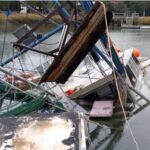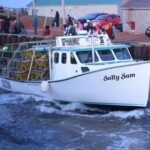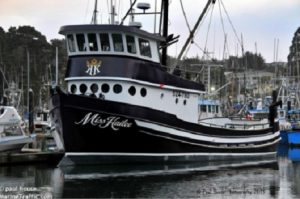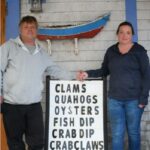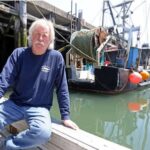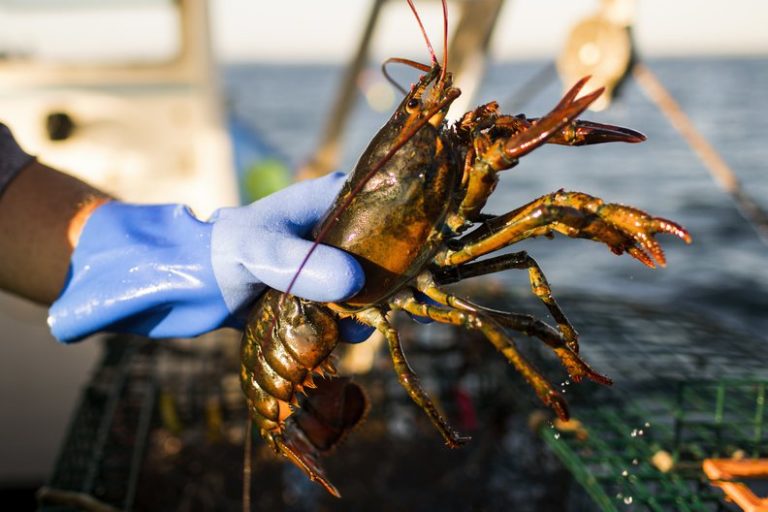Daily Archives: July 21, 2023
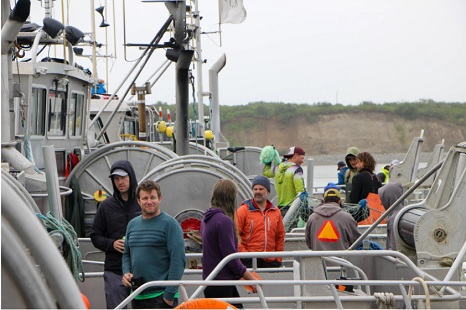
Bristol Bay fishermen protest low base price, lack of transparency
By 9 am, over one hundred boats are anchored in the Naknek River entrance, some after a night of fishing the Naknek-Kvichak. Ivan Basargin of the fishing vessel Top Notch is one of them. He’s here to join the demonstration against this year’s low price. Standing in the wheelhouse of a boat he built, he says this year’s low-price hits hard. “I’m going to pay my workers. I’m going to pay my bills. As far as living expenses, I haven’t decided yet. This 50 cents that I get, when I get home, it’s going to be a wash. I’m not going to have any money in the bank saved,” he said. Organizers of the protest are calling on processors to reconsider and improve the base price this season from 50 cents per pound, less than half of last year’s price. “If they know we can fish for 50 cents, we’re going to get paid 30 cents next year,” he said. “That will happen if we don’t do anything. Like today – this is a peaceful protest. We’re not trying to block people or anything. We’re just trying to show the world that we’re hurting, and we need some help.” Basargin says processors are claiming they are struggling financially too but he hasn’t seen evidence of this struggle. >click to read< 17:15
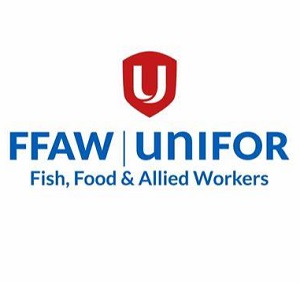
FFAW: Conflict Brews At-Sea as Drill Rig Takes Over Prime Crab Grounds
July 21, 2023 – Crab harvesters on the Avalon Peninsula are calling out the oil and gas industry as the Hercules drill rig, operated by ExxonMobil in the Jeanne d’Arc Basin, is in direct conflict with traditional prime fishing grounds. Despite vocal opposition from FFAW-Unifor throughout the consultation process with the regulatory body, the Canada-Newfoundland and Labrador Offshore Petroleum Board (C-NLOPB), the Board and Exxon proceeded with the drill operations during peak fishing time in an especially difficult year for harvesters. “Our members feel this brewing spatial conflict is representative of the continuous disregard for the fishing industry. Expansion of the oil and gas industry needs to be considered alongside the fishery, not in priority to it,” says FFAW-Unifor President Greg Pretty. >click to read the press release< 14:28
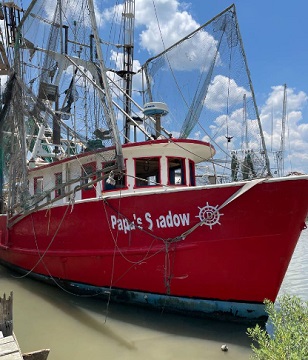
What you should know about The Shrimpocalypse, the wipeout of a time-honored US industry
On the inviting, teal-colored water in the shipping channels off the coast of southern Louisiana, Phillip “Rooster” Dyson pilots his bright red shrimp boat named Papa’s Shadow through a landscape he no longer recognizes. His practiced gaze sweeps over the water, but very little remains of the small fishing community of Cameron, where he has lived all his 40 years. The rickety wooden social clubs, bars, homes, and colorful shrimping boats are gone, most of it replaced by giant liquid natural gas terminals, and many more are planned for Louisiana’s fragile coast. “It costs $400 just to take the boat out,” he said in his strong Southern Creole accent, adding that July can often be a slow month for shrimp. One of his most recent catches in mid-July brought in a measly $200, to be shared between himself and the two men that work on his boat. Dyson has eight kids, while his employees also have families. Photo gallery, >click to read< 11:47
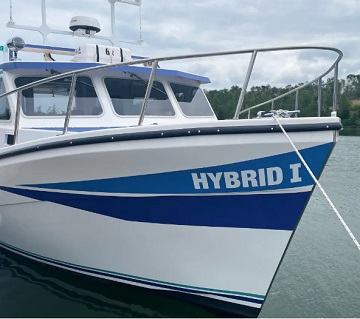
Cutting-edge hybrid boat built by a P.E.I. company goes to its new home in New Brunswick
The vessel and the green technology were developed by P.E.I. engineering company Aspin Kemp & Associates. The lobster boat is called Hybrid One. Company CEO Jason Kemp said making a hybrid system work in smaller fishing vessels has been a challenge. “Because on the bigger vessels, a million dollar or multi-million dollar system can be justified as a cost, where on a small fishing vessel, it’s not. So we had to take a couple of decades of learning, and apply that to this concept to get those costs down and shrink the physical size of it down to integrate it into the repulsion system,” he said. Panmure Island lobster fisher Dana Lavers has been testing out the vessel for Aspin Kemp for the past few months. Photos,>click to read< 10:49
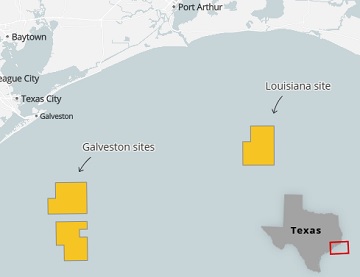
First offshore wind leases off the Texas coast offered for bidding
The federal government on Thursday announced the first-ever chance for companies to lease areas in the Gulf of Mexico to build wind farms, including two parcels roughly 30 miles off the Texas coast near Galveston. Renewable energy developers will likely compete for the leases with firms that are better known for another kind of offshore construction: Oil and gas giants such as Shell and TotalEnergies qualified to join the bidding. Leaders of the traditionally fossil fuel-focused companies say their climate goals make investing in offshore wind critical. Both businesses are already involved in developing wind power in the Atlantic, including near New Jersey, New York and Massachusetts. >click to read< 10:02
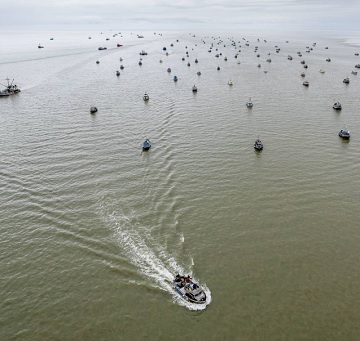
Alaska salmon fishermen fume over low prices, but processors say they’re hurting too
Aboard the F/V Five Star, his boat, Danielson and his deckhand put away as many pounds of fish as they could. They had no breakdowns. But his seafood processor is paying him 70 cents per pound for his salmon, half of last year’s price which means that instead of his usual six-figure haul for a summer of hard work, he might only break even, or go home to his family in Washington with $10,000, if he’s lucky. He added: “We’re up against something that’s out of our control, and that’s the processors killing us here.” In the past few weeks, thousands of fishermen across the state have found themselves in a similar predicament,,, Photos, >click to read< 08:52
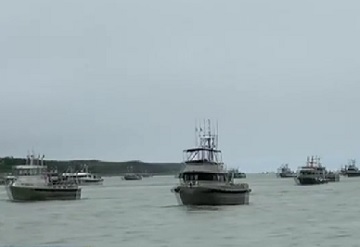
Bristol Bay fishermen protest processors’ low sockeye market price — 50 cents per pound
Some Bristol Bay fishermen are furious over the 50 cent per pound market price for sockeye salmon that Bristol Bay processors are hitting them with. Now the fishermen are protesting over a market price they received 40 years ago — a price some fisherman said could force the industry into a downward spiral, and that action needs to be taken. On Thursday morning more than 60 fishing vessels lined the Naknek River in solidarity. Protest spokesperson Cheyne Blough said the protest was announced on Facebook when the processors declared the base price earlier this week. Blough said the 50 cent per pound market price isn’t enough for fishermen to recover their costs, and could put some out of business. Video, >click to read< 07:45


































